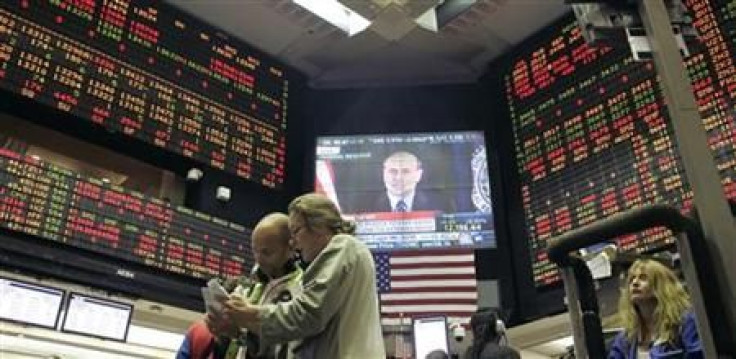S&P Downgrade Old News; Fed, Threat of New Recession Becomes Focus

The S&P downgrade of the U.S. debt rating helped fuel the worst day on Wall Street Monday since the fall 2008 financial crisis. But that's already old news for Wall Street.
The issue at the forefront for investors that matters most is the slow growth economy and the threat of a new recession -- and what the Fed might do about it.
"The S&P downgrade is the least of our problems," said economist Scott Brown of Raymond James & Associates, in the Post Crescent.
Monday was the first day of U.S. trading after Friday's stunning downgrade by the ratings agency S&P of the U.S. by one notch from AAA. All three major indexes, including the Dow, NASDAQ, and S&P 500 shed five percent or more on Monday -- the worst trading day since the dawn of the Great Recession.
By Tuesday, however, U.S. stocks rebounded on hopes the Federal Reserve may strengthen its commitment to record monetary stimulus as early as today in the effort to stave off a new recession -- the classic double-dip.
Chairman Ben Bernanke and colleagues are meeting Tuesday at a regular meeting in Washington, and said to be considering the use of new policy tools after two rounds of bond buying totaling $2.3 trillion failed to spur economic growth and make a dent in America's 9.1 unemployment rate.
"The odds of more dramatic (Fed) action are higher," said Vincent Reinhart, a former chief monetary policy strategist at the Fed, in an interview with Bloomberg. "However, they might not want to be seen as responding so directly to equity prices."
Typically, the Fed tries to avoid direct reaction to stock markets. Instead, the Fed focuses on broad-based economic issues, including slow growth. Last month, however, the government revised GDP numbers for the first half of the year, revealing that the U.S. economy barely grew at all in the first quarter.
"We should get some kind of bounce because we're so oversold," said Alan Valdes, director of floor operations and VP of trading at DME Securities, in an interview with CNBC. "But traders are treading water ahead of the Fed Statement...volume is also light."
With growth near one percent, and unemployment above nine percent two years after the official end to the recession, and with food stamps use on the rise, many economists have said of late that the threat of the U.S. entering another recession is very real. They have said, however, that a new recession would be less severe than the recent Great Recession.
New Fed action could help stave off a recession, and that's what the market was betting Tuesday, as investors jumped back into the market with strong buying, in an advance of an anticipated statement from the Fed.
There was concern, however, that investors were placing too much optimism in hopes of strong language from the Fed, and that anything less might send stocks equities back into reversal mode.
Still, after every single one of the S&P 500 stocks declined on Monday -- the first time that's ever happened -- many saw beaten down prices as a buying opportunity.
"We are buying into weakness," said Keith Goddard, who manages $1 billion for Dallas-based Capital Advisors, in an interview with The Associated Press.
But others were not so sure that the market's bull run after the recession has not turned into a bear market with the threat of looming recession. Dimitre Genov, a senior portfolio manager with Artio Global Investors, a firm with $47 billion in assets under management, told the AP he has been buying so-called defensive stocks that pay higher dividends.
Genov said a new bear market -- a 20 percent drop from the stock market's previous highs -- is a real possibility.
"It's becoming a vicious cycle," he said. "We're not (in a bear market) yet but we're getting close."
© Copyright IBTimes 2024. All rights reserved.











